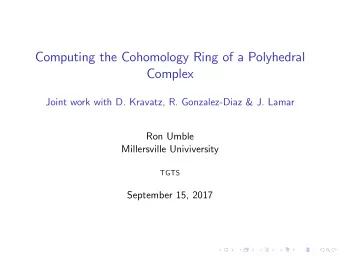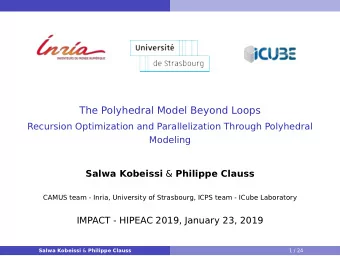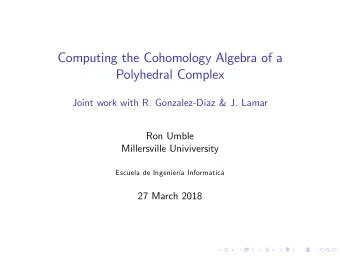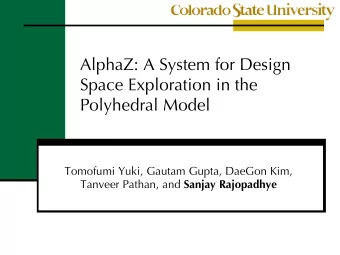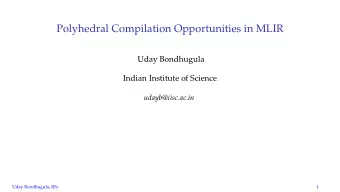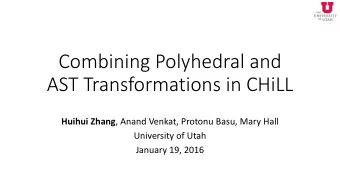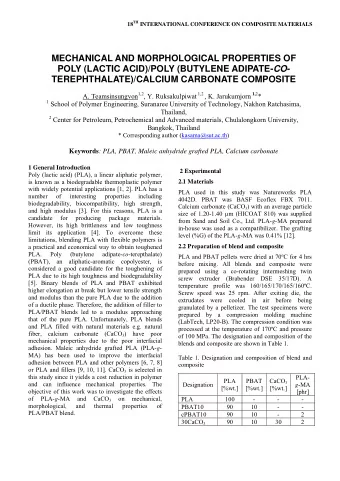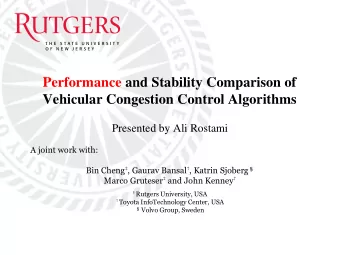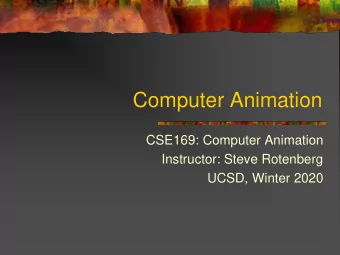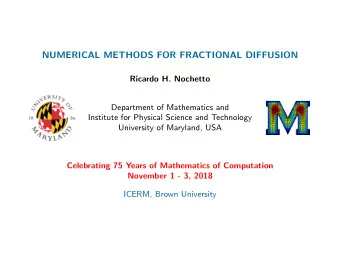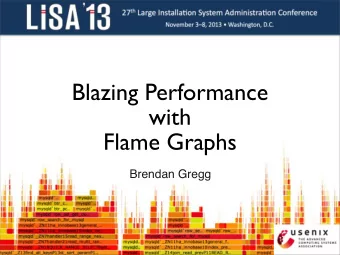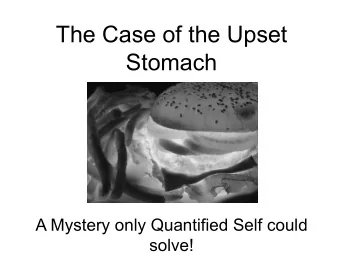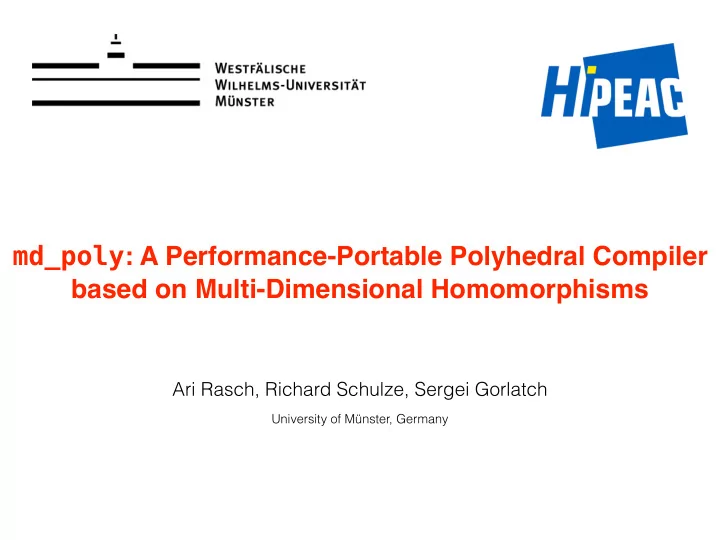
md_poly : A Performance-Portable Polyhedral Compiler based on - PowerPoint PPT Presentation
md_poly : A Performance-Portable Polyhedral Compiler based on Multi-Dimensional Homomorphisms Ari Rasch, Richard Schulze, Sergei Gorlatch University of Mnster, Germany <latexit
md_poly : A Performance-Portable Polyhedral Compiler based on Multi-Dimensional Homomorphisms Ari Rasch, Richard Schulze, Sergei Gorlatch University of Münster, Germany
<latexit sha1_base64="yONhjet6jUxuF8XYlEGXPrQ7wns=">ACzXicbVHLbtswEKTV6q+nPbYC1EngNOogRSgaI9Bc+ktKVAnASxDoKiVTZgPgVylNlT12m/p1/Ta/E1oxwfb6QIEBrMzuyQnr6RwGMc3neDBw0ePn+w8DZ89f/HyVXf39YUzteUw4EYae5UzB1JoGKBACVeVBaZyCZf59HTRv7wG64TR3FewUixsRal4Aw9lXVP91KEGSI2qkiziVFtP41oGdE06qdcWC6hYA6zJEoLg45H6+T0wMsO9rJuLz6Kl0Xvg2QFemRV59lux/pvFagkUvm3DCJKxw1zKLws9twP60dVIxP2RiGHmqmwI2a5XNbu+ZgpbG+qORLtlw3VFci8otPdG2eV3XMOXcXOV+omI4cdu9Bfm/3rDG8vOoEbqETS/u1BZS4qGLv6YFsICRzn3gHEr/KMonzDLOPokNrbkyrtpbmRBhaLTVSZAjY0Dj2goMc+4s37u7lGNvOch/cKMV0kRaVrF1zmE6cV8H75sPHatYetmHoU0q2M7kPLo6PEo+/HfdOvqzy2iFvyTvSJwn5RE7IV3JOBoSTP+Qv+UdugrOgDn4Gv+6kQWfleUM2Kvh9C+A74Ws=</latexit> <latexit sha1_base64="yONhjet6jUxuF8XYlEGXPrQ7wns=">ACzXicbVHLbtswEKTV6q+nPbYC1EngNOogRSgaI9Bc+ktKVAnASxDoKiVTZgPgVylNlT12m/p1/Ta/E1oxwfb6QIEBrMzuyQnr6RwGMc3neDBw0ePn+w8DZ89f/HyVXf39YUzteUw4EYae5UzB1JoGKBACVeVBaZyCZf59HTRv7wG64TR3FewUixsRal4Aw9lXVP91KEGSI2qkiziVFtP41oGdE06qdcWC6hYA6zJEoLg45H6+T0wMsO9rJuLz6Kl0Xvg2QFemRV59lux/pvFagkUvm3DCJKxw1zKLws9twP60dVIxP2RiGHmqmwI2a5XNbu+ZgpbG+qORLtlw3VFci8otPdG2eV3XMOXcXOV+omI4cdu9Bfm/3rDG8vOoEbqETS/u1BZS4qGLv6YFsICRzn3gHEr/KMonzDLOPokNrbkyrtpbmRBhaLTVSZAjY0Dj2goMc+4s37u7lGNvOch/cKMV0kRaVrF1zmE6cV8H75sPHatYetmHoU0q2M7kPLo6PEo+/HfdOvqzy2iFvyTvSJwn5RE7IV3JOBoSTP+Qv+UdugrOgDn4Gv+6kQWfleUM2Kvh9C+A74Ws=</latexit> <latexit sha1_base64="yONhjet6jUxuF8XYlEGXPrQ7wns=">ACzXicbVHLbtswEKTV6q+nPbYC1EngNOogRSgaI9Bc+ktKVAnASxDoKiVTZgPgVylNlT12m/p1/Ta/E1oxwfb6QIEBrMzuyQnr6RwGMc3neDBw0ePn+w8DZ89f/HyVXf39YUzteUw4EYae5UzB1JoGKBACVeVBaZyCZf59HTRv7wG64TR3FewUixsRal4Aw9lXVP91KEGSI2qkiziVFtP41oGdE06qdcWC6hYA6zJEoLg45H6+T0wMsO9rJuLz6Kl0Xvg2QFemRV59lux/pvFagkUvm3DCJKxw1zKLws9twP60dVIxP2RiGHmqmwI2a5XNbu+ZgpbG+qORLtlw3VFci8otPdG2eV3XMOXcXOV+omI4cdu9Bfm/3rDG8vOoEbqETS/u1BZS4qGLv6YFsICRzn3gHEr/KMonzDLOPokNrbkyrtpbmRBhaLTVSZAjY0Dj2goMc+4s37u7lGNvOch/cKMV0kRaVrF1zmE6cV8H75sPHatYetmHoU0q2M7kPLo6PEo+/HfdOvqzy2iFvyTvSJwn5RE7IV3JOBoSTP+Qv+UdugrOgDn4Gv+6kQWfleUM2Kvh9C+A74Ws=</latexit> <latexit sha1_base64="yONhjet6jUxuF8XYlEGXPrQ7wns=">ACzXicbVHLbtswEKTV6q+nPbYC1EngNOogRSgaI9Bc+ktKVAnASxDoKiVTZgPgVylNlT12m/p1/Ta/E1oxwfb6QIEBrMzuyQnr6RwGMc3neDBw0ePn+w8DZ89f/HyVXf39YUzteUw4EYae5UzB1JoGKBACVeVBaZyCZf59HTRv7wG64TR3FewUixsRal4Aw9lXVP91KEGSI2qkiziVFtP41oGdE06qdcWC6hYA6zJEoLg45H6+T0wMsO9rJuLz6Kl0Xvg2QFemRV59lux/pvFagkUvm3DCJKxw1zKLws9twP60dVIxP2RiGHmqmwI2a5XNbu+ZgpbG+qORLtlw3VFci8otPdG2eV3XMOXcXOV+omI4cdu9Bfm/3rDG8vOoEbqETS/u1BZS4qGLv6YFsICRzn3gHEr/KMonzDLOPokNrbkyrtpbmRBhaLTVSZAjY0Dj2goMc+4s37u7lGNvOch/cKMV0kRaVrF1zmE6cV8H75sPHatYetmHoU0q2M7kPLo6PEo+/HfdOvqzy2iFvyTvSJwn5RE7IV3JOBoSTP+Qv+UdugrOgDn4Gv+6kQWfleUM2Kvh9C+A74Ws=</latexit> Our Background We are the developers of the MDH code generation approach: Executable Generic Different architectures program code program code and input sizes High-level parallel __kernel void gemv_fst( __global float* in_matrix, __global float* in_vector, __global float* out_vector, { // private memory for a WI's computation __private float res_prv = 0.0f; // local memory for a WG's computation __local float res_lcl[ NUM_WI_1 ][ NUM_WI_2 ]; __kernel void gemv_fst( __global float* in_matrix, programming abstractions __global float* in_vector, // iteration over P_sq blocks for( int i_sq = 1 ; i_sq <= NUM_SQ_1 ; ++i_sq ) { __global float* out_vector, for( int j_sq = 1 ; j_sq <= NUM_SQ_2 ; ++j_sq ) { { res_prv = 0.0f; // sequential computation on a P_wi partition // private memory for a WI's computation for( int i = 1 ; i <= WI_PART_SIZE_1 ; ++i ) for( int j = 1 ; j <= WI_PART_SIZE_2 ; ++j ) __private float res_prv = 0.0f; res_prv += my_p_wi( i, j, 0 ) * my_p_wi( i, j, 1 ); // store result in local memory // local memory for a WG's computation res_lcl[ WI_ID_1 ][ WI_ID_2 ] = res_prv; __local float res_lcl[ NUM_WI_1 ][ NUM_WI_2 ]; barrier( CLK_LOCAL_MEM_FENCE ); // iteration over P_sq blocks // combine the WIs' results in dimension x for( int stride = NUM_WI_2 / 2 ; stride > 0 ; stride /= 2) for( int i_sq = 1 ; i_sq <= NUM_SQ_1 ; ++i_sq ) { { for( int j_sq = 1 ; j_sq <= NUM_SQ_2 ; ++j_sq ) { if( WI_ID_2 < stride) res_lcl[ WI_ID_1 ][ WI_ID_2 ] += res_lcl[ WI_ID_1 ][ WI_ID_2 + stride ]; res_prv = 0.0f; barrier( CLK_LOCAL_MEM_FENCE ); } // sequential computation on a P_wi partition for( int i = 1 ; i <= WI_PART_SIZE_1 ; ++i ) // store WGs' results in global memory if( WI_ID_2 == 0 ) md hom ( f, ( ~ 1 , . . . , ~ k ) ) for( int j = 1 ; j <= WI_PART_SIZE_2 ; ++j ) my_res( i_sq ) = res_lcl[ WI_ID_1 ][0]; res_prv += my_p_wi( i, j, 0 ) * my_p_wi( i, j, 1 ); barrier( CLK_LOCAL_MEM_FENCE ); // store result in local memory } // end of for-loop j_sq } // end of for-loop i_sq res_lcl[ WI_ID_1 ][ WI_ID_2 ] = res_prv; } // end of kernel barrier( CLK_LOCAL_MEM_FENCE ); // combine the WIs' results in dimension x … for( int stride = NUM_WI_2 / 2 ; stride > 0 ; stride /= 2) { if( WI_ID_2 < stride) res_lcl[ WI_ID_1 ][ WI_ID_2 ] += res_lcl[ WI_ID_1 ][ WI_ID_2 + stride ]; barrier( CLK_LOCAL_MEM_FENCE ); } // store WGs' results in global memory if( WI_ID_2 == 0 ) my_res( i_sq ) = res_lcl[ WI_ID_1 ][0]; __kernel void gemv_fst( __global float* in_matrix, barrier( CLK_LOCAL_MEM_FENCE ); __global float* in_vector, __global float* out_vector, { } // end of for-loop j_sq // private memory for a WI's computation } // end of for-loop i_sq __private float res_prv = 0.0f; } // end of kernel // local memory for a WG's computation __local float res_lcl[ NUM_WI_1 ][ NUM_WI_2 ]; // iteration over P_sq blocks for( int i_sq = 1 ; i_sq <= NUM_SQ_1 ; ++i_sq ) { for( int j_sq = 1 ; j_sq <= NUM_SQ_2 ; ++j_sq ) { res_prv = 0.0f; // sequential computation on a P_wi partition (1) (2) (3) for( int i = 1 ; i <= WI_PART_SIZE_1 ; ++i ) for( int j = 1 ; j <= WI_PART_SIZE_2 ; ++j ) res_prv += my_p_wi( i, j, 0 ) * my_p_wi( i, j, 1 ); // store result in local memory res_lcl[ WI_ID_1 ][ WI_ID_2 ] = res_prv; barrier( CLK_LOCAL_MEM_FENCE ); // combine the WIs' results in dimension x for( int stride = NUM_WI_2 / 2 ; stride > 0 ; stride /= 2) { if( WI_ID_2 < stride) res_lcl[ WI_ID_1 ][ WI_ID_2 ] += res_lcl[ WI_ID_1 ][ WI_ID_2 + stride ]; barrier( CLK_LOCAL_MEM_FENCE ); Generation Optimization Execution } // store WGs' results in global memory if( WI_ID_2 == 0 ) my_res( i_sq ) = res_lcl[ WI_ID_1 ][0]; barrier( CLK_LOCAL_MEM_FENCE ); } // end of for-loop j_sq } // end of for-loop i_sq } // end of kernel [PACT’19, IJPP’18] [CCPE’18, HPCC’17] [JOS’19, ICPADS’18] • Multi-Dimensional Homomorphisms (MDHs) are a formally defined class of functions that cover important data-parallel computations , e.g.: linear algebra routines (BLAS), stencils computations, … • We enable conveniently implementing MDHs by providing a high-level DSL for them. • We provide a DSL compiler that automatically generates OpenCL code — the standard for uniformly programming different parallel architectures (e.g., CPU and GPU). • Our OpenCL code is fully automatically optimizable (auto-tunable) — for each combination of a target architecture , and input size — by being generated as targeted to OpenCL’s abstract device models and as parametrized in these models’ performance-critical parameters. 2
Experimental Results Stencils Data Mining Gaussian (2D) Jacobi (3D) CPU RW PC RW PC Probabilistic Record Linkage CPU 2¹⁵ 2²⁰ 2¹⁶ 2¹⁷ 2¹⁸ 2¹� 4.90 5.96 1.94 2.49 Lift [2] 1.87 2.06 4.98 13.86 28.34 39.36 EKR [5] 6.99 14.31 N/A N/A MKL-DNN [5] Forchhammer et al. “Duplicate Detection on GPUs.”, HFSL’13 . Gaussian (2D) Jacobi (3D) GPU RW PC RW PC 2.33 1.09 1.14 1.02 Lift [2] 3.78 19.11 N/A N/A cuDNN Our MDH approach achieves [2] Hagedorn et. al, "High Performance Stencil Code Generation with LIFT.”, CGO’18 often better performance than (Best Paper Award) . well-performing competitors [1] Linear Algebra [1] Rasch, Schulze, Gorlatch. "Generating Portable High-Performance Code via Multi- GEMM GEMV CPU Dimensional Homomorphisms.”, PACT’19 RW PC RW PC Lift [1] fails 3.04 1.51 1.99 MKL 4.22 0.74 1.05 0.87 Tensor Contractions GEMM GEMV Tensor Contractions GPU GPU RW PC RW PC RW 1 RW 2 RW 3 RW 4 RW 5 RW 6 RW 7 RW 8 RW 9 Lift [1] 4.33 1.17 3.52 2.98 1.26 1.16 2.12 1.24 1.18 1.36 1.48 1.44 1.85 COGENT [3] cuBLAS 2.91 0.83 1.03 1.00 F-TC [4] 1.19 2.00 1.43 2.89 1.35 1.54 1.25 2.02 1.49 [3] Kim et. al. "A Code Generator for High-Performance Tensor [1] Steuwer et. al, "Lift: A Contractions on GPUs.”, CGO’19 . Functional Data-Parallel IR for [4] Vasilache et al. "The Next 700 Accelerated Layers: From High-Performance GPU Code Mathematical Expressions of Network Computation Graphs to Generation”, CGO’17 . 3 Accelerated GPU Kernels, Automatically . ”, TACO, 2019 .
Observation Comparison: MDH Approach vs. Polyhedral Approaches (e.g. PPCG) • Polyhedral approaches often provide better productivity → automatically parallelize sequential program code (rather than relying on a DSL). • The MDH approach achieves often higher performance than polyhedral compilers; its generated code is portable over different architectures (e.g., GPU and CPU). Goal of this work: Combining the advantages of both approaches 4
Recommend
More recommend
Explore More Topics
Stay informed with curated content and fresh updates.

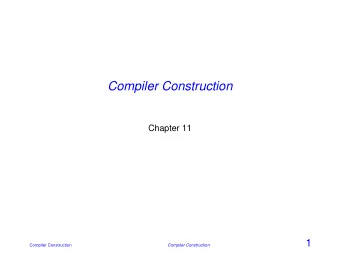
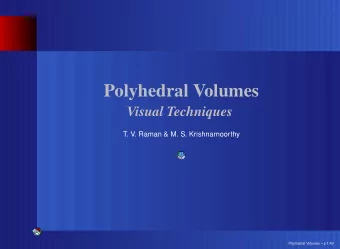

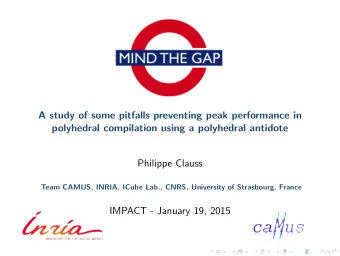

![Interactive Proofs Lecture 19 And Beyond 1 So far 2 So far IP = PSPACE = AM[poly] 2 So far](https://c.sambuz.com/1028644/interactive-proofs-s.webp)
